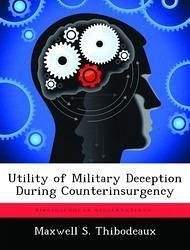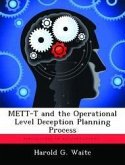This monograph questions the utility of military deception (MILDEC) given its decidedly different dynamics inside counterinsurgency (COIN) operations. It examines relevant theoretical touchstones and doctrinal frameworks to determine whether the Army's concept of deception can accommodate such application. Available historic vignettes from Viet Nam, Philippines, Malaya, Kenya, and Rhodesia inform the theoretical inquiry. Finally a look at the legal and ethical implications of MILDEC during COIN leads to certain implications. The monograph finds that MILDEC is useful to counterinsurgents. In particular, the most effective deceptions in counterinsurgent history involve the prudent use of pseudo operators who are able to generate intelligence and results in an environment where conventional methods cannot. However, there are certain legal and ethical guidelines that planners should follow to insure that MILDEC does not become counterproductive. Specifically, an ethical test of publicity should be applied to rule out immoral applications of MILDEC in an environment where public support is paramount.
Hinweis: Dieser Artikel kann nur an eine deutsche Lieferadresse ausgeliefert werden.
Hinweis: Dieser Artikel kann nur an eine deutsche Lieferadresse ausgeliefert werden.








